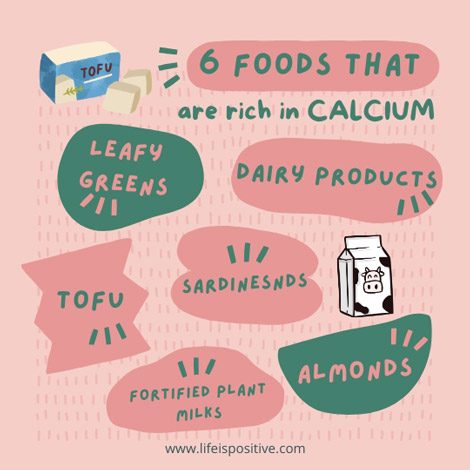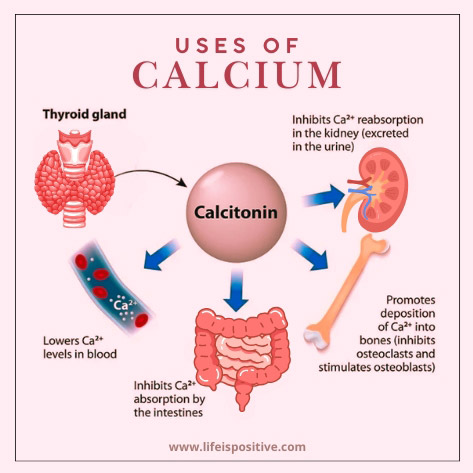|
Getting your Trinity Audio player ready...
|
We all know calcium is important for strong bones, but did you know that a lack of calcium in the body can affect much more than just your skeleton?
From muscle cramps to weak nails, low calcium levels can sneak up on you, leaving you feeling run down. While most people associate calcium with dairy, it’s not just about milk and cheese.
A lack of calcium in the body can lead to serious health issues over time if ignored. Curious if you’re getting enough? Let’s dive into the signs and how to keep your calcium levels in check!
Lack of Calcium in Your Body Signs
1. Frequent Muscle Cramps and Spasms
One of the first signs of a lack of calcium in your body is frequent muscle cramps and spasms. Understanding the importance of calcium: It’s a key player in muscle contraction and relaxation.
Without enough calcium, you might experience painful cramps, especially in your legs and feet, often occurring at night.
Read: 10 Importance of Vitamins for Your Health
2. Tingling and Numbness
Experiencing tingling and numbness in your fingers and toes? It could be a sign of calcium deficiency. This happens because calcium is essential for proper nerve function.
A lack of calcium can lead to impaired nerve signaling, causing sensations of tingling, numbness, or even a “pins and needles” feeling.
3. Brittle Nails and Hair
Want strong, healthy nails and luscious locks? Don’t overlook the importance of calcium. Without enough calcium, your nails can become brittle, and your hair might turn dry and become prone to breakage.
Keep an eye on these signs – they could be a signal to boost your calcium intake!
4. Dental Issues
Since calcium is a major component of teeth, a deficiency can lead to dental problems.These include weakened tooth enamel, an increased risk of cavities, and even gum disease.
If you find that your dental health is deteriorating, it could be due to a lack of calcium in your body.
Read: Top 10 Amazing Health Benefits of Papaya
5. Frequent Bone Fractures
Bones are the most obvious storage places for calcium in the body. A lack of calcium can make your bones weaker and more prone to fractures.
If you experience frequent bone fractures or if your bones seem to break easily, it’s a strong sign that you need more calcium in your diet.
6. Fatigue and Weakness
Feeling tired all the time despite getting enough sleep? This could be another sign of a lack of calcium in your body. Calcium is crucial for energy production and muscle function.
Without it, you may feel constantly fatigued and weak, impacting your daily activities.
7. Difficulty Sleeping
Calcium isn’t just for strong bones – it also helps your body produce melatonin, the sleep-regulating hormone. If you find it hard to drift off or stay asleep, low levels of calcium could be to blame.
Keep an eye on your calcium intake to ensure you’re getting the restful sleep you need.
Read: 10 Tips to Sleep Better
8. Memory Problems and Brain Fog
Your brain also relies on calcium to function properly. A lack of calcium can lead to memory problems, difficulty concentrating, and a general sense of brain fog.
If you frequently forget or are unable to focus, it might be time to check your calcium levels.
9. Depression and Mood Swings
Calcium is involved in the regulation of mood and emotional stability. A lack of this can affect your mood, make you feel anxious, and even cause symptoms of depression.
If you’ve been feeling unusually down or irritable, consider whether a lack of calcium in your body might be contributing to these feelings.
Read: Top 5 Depression Diet Food
10. High Blood Pressure
Calcium is important for helping blood vessels to contract and relax properly, which is necessary for maintaining healthy blood pressure levels.
A lack of calcium can lead to hypertension or high blood pressure, which increases your risk of heart disease and stroke. Ensuring you have enough calcium can help keep your blood pressure in check.
Addressing Lack of Calcium in the Body
If you recognize any of these signs of lack of calcium in your body, it’s important to take action. Here are some steps you can take to boost your calcium intake and improve your overall health:
1. Eat Calcium-Rich Foods
Add more foods with calcium to your meals. Good sources include milk, cheese, yogurt, kale, and broccoli. Other options include almonds, tofu, and fortified foods such as orange juice and cereals.
2. Consider Supplements
If you find it challenging to get enough calcium through your diet alone, consider taking a calcium supplement.
Before starting any new supplement, it’s important to have a chat with your healthcare provider. They can help figure out the right dosage and make sure it won’t cause any issues with other medications or conditions.
3. Get Enough Vitamin D
Vitamin D is essential for calcium absorption. Make sure you’re getting enough vitamin D by spending time in the sunlight, eating vitamin D-rich foods like fatty fish and eggs, or taking a supplement if needed.
Your doctor can help determine if you need additional vitamin D.
4. Exercise Regularly
Weight-bearing activities like walking, running, and weightlifting can make your bones stronger and boost your overall health.
Working out regularly also helps your body absorb and use calcium better.
Read: Exercises For Your Brain
5. Avoid Excessive Caffeine and Alcohol
Consuming a lot of caffeine and alcohol can mess with your body’s ability to absorb calcium, which can result in bone loss.
To help keep your calcium levels and overall health in check, try to cut back on these substances.
Final Thoughts On Lack of Calcium in Your Body
It’s really important to know the signs that your body might need more calcium to stay healthy. Things like muscle cramps and tooth problems can show you’re not getting enough.
You can boost your calcium levels and stop these issues by eating more calcium-rich foods, thinking about taking supplements, and making some changes to your lifestyle.
Just pay attention to what your body is telling you, and take action to make sure you’re getting enough calcium for a healthy and lively life.
Remember, your body’s well-being is a priority. By addressing the lack of calcium in your body now, you can avoid more serious health problems down the road.
So, make those small changes today for a healthier tomorrow. Stay informed, eat well, and keep your bones strong!
For more empowering content, connect with our vibrant community here ➡️ Social Media.



